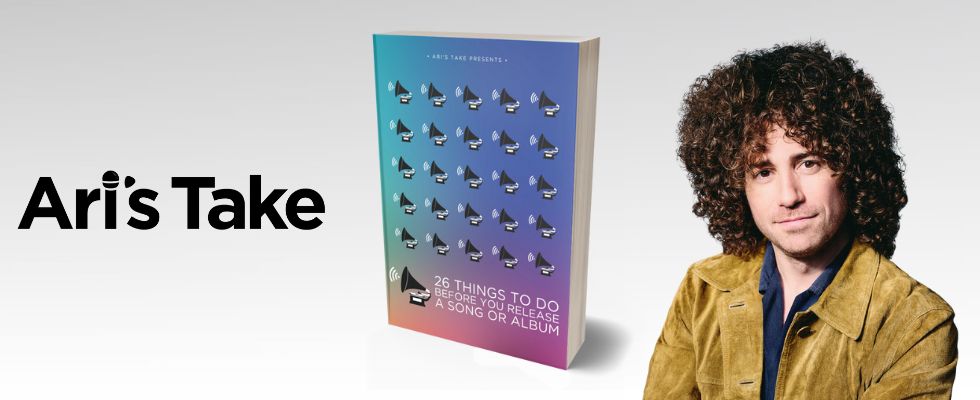Last week I was in San Francisco joining an artist for the last leg of their tour.
I was acting tour manager (TM) and ran the merch. It’s very fun for me to wear these hats as I’ve done these jobs hundreds of times in the past for my shows and tours, but in this instance, I didn’t have the added pressure of having to put on a great show amongst all of the logistical requirements.
The artist I was helping out was the support act for the tour. I’m withholding the names here to protect the innocent. I absolutely love this artist and they’re honestly one of my favorite live acts of the moment.
After they finished running a song at sound check, the front of house engineer (FOH) said through the talk back mic “that was fucking awesome.”
I could see the staff of the venue all getting very excited about this band.
After sound check, the FOH said “alright, we’ll see you at 9!” Then the FOH and the venue manager had a brief conference and the FOH said “strike that, see you at 9:30.“
I asked the venue manager “are we changing the run of show? I had 9:00” He responded “Yeah, let’s wait until more people are in the room. People need to see this.” Well this is probably the best response you could hope for from the venue staff in a club you’ve never played before.
At 9:30, the band took the stage to a packed house and played an unstoppable show. The mix was beautifully dialed in. The FOH even got the impressive light system going.
Few people in the live music industry give me as much anxiety as the house sound engineers.
Before an artist can afford to bring their own FOH to mix their set, they have to roll the dice and pray to the live music gods that the engineer for the evening is not only capable at their job (not a given), but also in a good mood and gives a shit. Far too often I have shown up to a club where the sound guy (in these instances, they were all men), had a massive chip on his shoulder, hated his life, didn’t want to be there and was seemingly doing everything in his power to make everyone’s life as miserable as he was. I of course did my best to make his day just a little bit brighter. Got his name. Used it. Was immensely respectful and appreciative. And sometimes the show was fine. Other times it wasn’t.
+9 Things Every Musician Needs To Know About The Sound Guy
So, on this night, in San Francisco, it was a nice treat to not only have a sound engineer who was actually excellent at his job, but was a pleasure to work with.
Then came the last song. The chorus of this song is the word “Up” repeated 4 times on quarter notes with a tag and then repeated again 4 times. But something strange happened on the final chorus of this song. The chorus changed. It seemed the singer decided to sing “Up” 8 times on eighth notes. Now, I’ve seen this artist perform this song maybe 25 times previously over the years. Never once did they change the chorus this dramatically. It’s their hit! Why would they completely change the hook like that?
Then I realized what had happened. The singer didn’t actually sing the chorus differently. The sound guy added tap delay! The tap delay was so prominent that it literally sounded like the singer changed the chorus.
Dear house sound engineers: don’t add tap delay to the vocals. That’s a creative liberty you should not be taking.
It can ruin the performance. If the artist wanted it they would have integrated it themselves.
In this case, it ruined the song. It took away the punch of the chorus. Fortunately, the sound guy decided to aggressively insert himself into only the final song and not the others, so the entire set wasn’t ruined.
Unfortunately, this is a common occurrence. And it’s usually from house sound engineers who are actually loving the artist on stage and want to contribute to the show.
Just. Don’t.
Front of house engineers can only make the band sound worse. They cannot make the band sound better.
If they do their job perfectly, then the band sounds exactly how they’re supposed to sound. If they’re good, they’ll sound good. If they’re bad, they’ll sound bad. All the reverb in the world ain’t gonna cover up awful vocals. The beefiest subs on the planet ain’t gonna cover up a bad bass player. And that tap delay that you’re adding because you think will enhance the song, well, it doesn’t. It makes the song worse. If the singer wanted it added they would have either integrated it themselves or have asked for it specifically. You don’t think they’ve worked this out ad nauseum in the studio or at the hundreds of previous shows? It’s quite arrogant to think that you know best, when you literally just stepped into the operation mere hours prior and are making these creative decisions on the fly mid song. You’re not in the band, bro. You weren’t at rehearsal. You didn’t ask!
The only effect that any house sound engineer should be adding – without consent – is reverb. And only if it’s necessary.
But every sound engineer should ask the singer at sound check if they would like any effects on their vocals. If you’re planning to add tap delay PLEASE ASK! Most singers do not want this. I’ve seen touring bands go so far as to put this in all caps and bold letters on their stage plot: PLEASE DO NOT ADD TAP DELAY TO THE VOCALS because it had become such a problem and common occurrence with house sound engineers.
Of course this could all be avoided simply by just communicating at sound check.
It’s equally on the singer as it is the engineer to discuss what mix and effects would work best for the performance. House sound engineers are coming into this cold. They’ve most likely never seen the band before and have probably never even heard the music. You can’t expect them to know how your set should be mixed.
Do you have tracks? How loud should they be? Are they driving the song or should they be auxiliary and function as backing vocals? This can all be worked out during sound check.
For the singers out there, talk about this at sound check. You’ve been warned. If it hasn’t happened to you yet, I guarantee it will at some point. If you don’t want tap delay interfering with your vocals (believe me, you don’t), mention it at sound check “I’d like a healthy amount of reverb, but please no tap delay.”
And to all the extremely capable house sound engineers out there reading this: we love you, we need you, please stop with the tap delay.

















